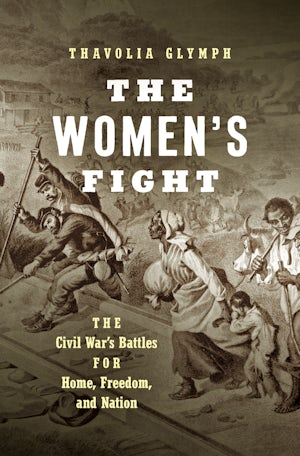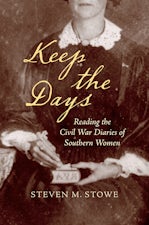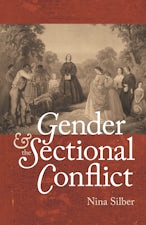The Women's Fight
The Civil War's Battles for Home, Freedom, and Nation
By Thavolia Glymph
392 pp., 6.125 x 9.25, 6 halftones, notes, bibl., index
-
Paperback ISBN: 978-1-4696-7250-2
Published: August 2022 -
Hardcover ISBN: 978-1-4696-5363-1
Published: February 2020 -
E-book EPUB ISBN: 978-1-4696-5364-8
Published: November 2019 -
E-book PDF ISBN: 979-8-8908-7031-5
Published: November 2019
Littlefield History of the Civil War Era
Buy this Book
- Paperback $27.95
- Hardcover $37.50
- E-Book $19.99
For Professors:
Free E-Exam Copies
Awards & distinctions
2021 Albert J. Beveridge Award, American Historical Association
2021 Joan Kelly Memorial Prize, American Historical Association
2021 Civil War and Reconstruction Book Award, Organization of American Historians
2021 Darlene Clark Hine Award, Organization of American Historians
2021 Mary Nickliss Prize, Organization of American Historians
2021 Tom Watson Brown Book Award, Society of Civil War Historians
2021 John Nau Book Prize in American Civil War Era History, John L. Nau III Center for Civil War History at the University of Virginia
Julia Cherry Spruill Prize, Southern Association for Women Historians
Finalist, 2021 Gilder Lehrman Lincoln Prize
Glymph shows how the Civil War exposed as never before the nation's fault lines, not just along race and class lines but also along the ragged boundaries of gender. However, Glymph makes clear that women's experiences were not new to the mid-nineteenth century; rather, many of them drew on memories of previous conflicts, like the American Revolution and the War of 1812, to make sense of the Civil War's disorder and death.
About the Author
Thavolia Glymph is Peabody Family Distinguished Professor of History and Professor of Law at Duke University and author of Out of the House of Bondage: The Transformation of the Plantation Household.
For more information about Thavolia Glymph, visit
the
Author
Page.
Reviews
"By telling the important, yet often-overlooked story of how enslaved women fought for their rights, and how white women often upheld the status quo, Glymph has written a much-needed account of Civil War historiography."—Library Journal
"Powerful. . . . The Women's Fight is a book that compels us to reckon not only with the wartime experience of women but the possibilities that can come from patient historical research. In both respects, Glymph succeeds brilliantly."—American Nineteenth Century History
"Glymph’s sweeping assessment employs intersectional methods to the study of women in the Civil War while simultaneously problematizing key assumptions in the field. The result is a bold reassessment of the field with the political inventiveness of women, North and South, planted firmly at its center. . . .The Women’s Fight has enormous implications for the future direction of Civil War historiography."Journal of African American History
"Broadly considered, this publication deepens the scholarship illustrating the depth of military policy on women, from auxiliary roles to all areas of service today."—CHOICE
"Glymph creates a new narrative about women in the war—across race, class, and regional boundaries—by challenging the battlefield/home front divide. . . . This book is a vital contribution to the scholarship on the Civil War because it does not merely illuminate the experiences of diverse groups of women; it also uses that evidence to transform our understanding of the Civil War (and perhaps war) itself."—Annals of Iowa
"Glymph adds to the important new work being conducted on how the war influenced many different groups of refugees and the specific issues they faced. Throughout the volume, she illuminates neglected narratives and provides suggestions on possible subjects for future studies about the lives of women during the era."—H-Net Reviews




